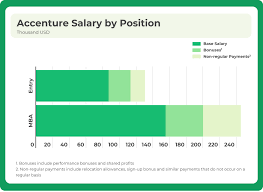
A company formation is the process of creating and incorporating a company. This process is also called company registration. Companies can also be formed in Ireland. There are many types of business formations, including partnerships, corporations and sole proprietorships. It is up to you to determine which type of business structure best suits your needs and industry.
Corporations
A corporation is a legal entity that allows owners to hold stock in the company. These shares can be sold or transferred between owners. The shareholders of a corporation do not own the company's assets but have a duty. If they fail to fulfill this duty, they may incur personal liabilities. Corporations are a good option for companies looking to raise capital, as well as to recruit employees. They are an option for medium- and high-risk businesses.
Corporations are legal entities with the power to enter contracts, sue other parties, own assets, remit federal and state taxes, and borrow money from financial institutions. In order to create a corporation you must file paperwork in the state where your business is located. You may need additional paperwork if your business plans take you outside of your home state.
Partnerships
A partnership is any type of business owned by two or more people. Although partnerships do not constitute legal business entities but are registered with a state, they offer limited liability protection. In addition to this, there are also a number of licensing requirements. For example, a partnership must obtain an employee identification number from the IRS. It may also be required to obtain a building or zoning permit. In addition, a partnership may have to pay additional taxes, such as self-employment tax or employer withholdings.

It is easier to form partnerships than any other type of business structure. Partnerships are generally less tax-exempt than corporations because they don't have to follow the same rules as corporations. They may not be the right choice for all businesses. Partnerships are used most frequently for professional groups. This includes lawyers, architects and doctors.
LLCs
There are several options for forming an LLC. The first step is completing the Articles of Organization, which designates the county the company is registered in. New York County generally refers to New York City's boroughs. You should choose the right county to represent your business. Some cities have both an borough and a country. The next step in the process is to name a secretary of state as the agent for service. This means that the Secretary will be the one who receives papers acquiring jurisdiction over LLC.
You should get a certificate from the state certifying that your LLC has been registered. This certificate will allow you to get your business tax ID numbers and open a bank accounts for it. You should also prepare an operating agreement, which contains the legal and financial details of your business. The agreement may include information such as who is allowed to leave the company and who contributes capital. It is important to include all pertinent information. This includes the names of all participants and their contact information.
Sole proprietorships
Solo proprietorships are a popular choice for small-time business owners. This business structure allows the owner to have complete control of the company. Additionally, it is inexpensive, and the owner isn't subject to the meetings and formalities of a corporation or limited liability company.
Sole proprietorships make it easy to start up and take down. Many small businesses start as sole proprietorships. Later, they may transition to limited liability entities (LLC) and corporations. A sole proprietorship has the downside that it does not provide protection from the government and the owner is responsible for all the obligations and liabilities. Solo proprietorships can be very affordable and simple to start. This makes them attractive for people with low budgets.

Limited partnerships
Limited partnerships are an option for those who want to start a business. They can provide protection for general partners, so they won't be personally liable if the business defaults. Additionally, limited partners can contribute startup capital. However, the general partner takes the greater risk for the business's future success. A limited partnership requires two or three partners. Partnerships must also be registered with Secretary of State. To open a business, partners must sign a certificate of limited partnership. This document includes the business name and agent as well as the name of the general Partner. Next, create an internal partnership contract that defines each partner's roles and responsibilities as well as the limitations partnership's profits.
A limited partnership can also be tax efficient. Limited partners don't have to pay self employment taxes, but general partners must. These tax savings are very attractive because limited partners don't have to be involved in the management day-to-day of the company.
FAQ
Is it necessary to pay taxes on consulting income
Yes, you will need to pay tax on your consultancy profits. It depends on how much income you make per year.
If you are self-employed, expenses can be claimed on top of your salary. These expenses include rent, childcare and food.
However, you can't deduct interest payments for loans, vehicle depreciation or the cost to purchase equipment.
You cannot claim back less than PS10,000 in a given year.
However, even if your earnings exceed this threshold you may still be subject to tax depending on whether or not you are a contractor or an employee.
Pay as you Earn (PAYE) is the most common method of taxing employees. Contractors pay VAT.
How is consulting different from freelancing
Freelancers, who are self-employed and provide services to clients without the need for employees, are independent contractors. They generally charge an hourly rate depending on how long they spend on a client project. Consultants usually work for agencies or companies that employ them. Their salaries are often paid monthly, or annually.
Because they have control over their work hours and can set their prices, freelancers are more flexible than consultants. But consultants have more benefits like vacation days, health insurance and retirement plans.
What degree do I need to become a consultant?
You can become an expert in any subject by learning the subject thoroughly, then applying what you have learned.
So if you want to learn how to become a great consultant, start studying now!
A degree without relevant experience may make it difficult for you to be hired. If you have demonstrated that you have studied the same subjects as those who received the jobs, then you may still be eligible to apply.
But remember, employers will always look for candidates with real-world expertise.
Who hires consultants
Many organizations employ consultants to assist in projects. This includes small businesses, large corporations and government agencies.
These consultants may work directly for the organization, or freelance. The process of hiring depends on the size and complexity the project.
Before you can hire a consultant, there will be several rounds of interviews.
How do I choose the right consultant?
There are three key factors to be aware of:
-
Experience - How many years of experience is this consultant? Is she a beginner, intermediate, advanced, expert, or something else? Does her resume reflect the knowledge and skills she has?
-
Education - What did he/she learn in school? Did he/she go on to further education after graduation? Do we see any evidence of this learning in the way he/she writes?
-
Personality - Do we like this person? Would you want this person to work for you?
-
These questions will help us determine if the consultant is right to meet our needs. If you don't have clear answers, it may be worth meeting with the candidate for an interview.
What industries employ consultants?
There are many types and styles of consultants. Some are specialists in one type or another of business.
Some consultants are only available to private companies while others work with large corporations.
Some consultants are available to help businesses around the world.
Statistics
- According to statistics from the ONS, the UK has around 300,000 consultants, of which around 63,000 professionals work as management consultants. (consultancy.uk)
- So, if you help your clients increase their sales by 33%, then use a word like “revolution” instead of “increase.” (consultingsuccess.com)
- According to IBISWorld, revenues in the consulting industry will exceed $261 billion in 2020. (nerdwallet.com)
- Over 62% of consultants were dissatisfied with their former jobs before starting their consulting business. (consultingsuccess.com)
- "From there, I told them my rates were going up 25%, this is the new hourly rate, and every single one of them said 'done, fine.' (nerdwallet.com)
External Links
How To
How can you find the best consultants?
It is important to first ask yourself what you expect from a consultant when searching for one. Before you start looking for someone to work with, it's important that you know your expectations. You should make a list of all the things you need from a consultant. This might include skills such as project management, professional expertise, communication, availability, and technical skills. After you have listed your requirements, it might be a good idea to ask colleagues and friends for their recommendations. Ask them if they had any bad experiences with consultants previously and see how their recommendations compare with yours. Do some internet research if they don't have recommendations. There are many websites, such as LinkedIn, Facebook, Angie's List, Indeed, etc., where people post reviews of their previous work experiences. Consider the ratings and comments of other candidates and use these data to start your search for potential candidates. Once you have narrowed down your list, reach out to potential candidates and set up an interview. At the interview, it is important to discuss your requirements and get their feedback on how they can help. It doesn’t matter who recommended them to you, just make sure they understand what you are trying to achieve and how they can help.